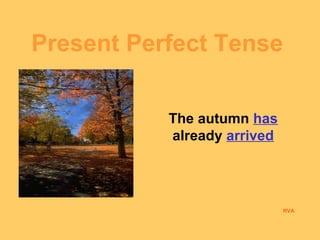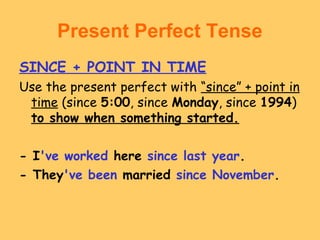The document provides an overview of the present perfect tense in English, including its form, uses, and contrast with the past simple tense. It discusses how the present perfect is used to describe completed past actions without a specific time reference, experiences that began in the past and continue to the present, and questions with "how long". It also covers the use of words like "already", "yet", "just", and "ever/never" with the present perfect.




















